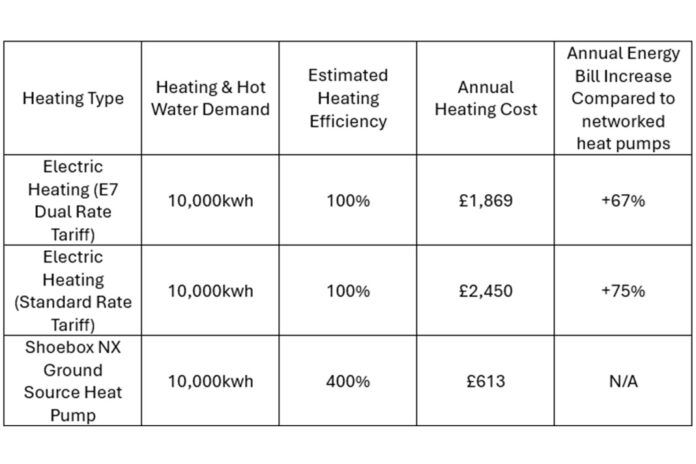
National Energy Action (NEA) and Kensa are calling for urgent action to protect consumers and aid those struggling to afford basic heating.
According to research released by the UK government, millions of people in the UK are living in fuel poverty, with at least 13% of households in England affected. However, this figure increases to nearly a quarter among households relying on electric heating. A statement said that the situation is particularly difficult for these homes, which have an average fuel poverty gap of £857, more than double the national average of £417.
This gap is caused by the inefficiency of direct electric heating, it noted, such as night storage heaters, and the rising cost of electricity, which has increased to 24.5p per kWh. As energy prices rise again this winter, electrically heated households could see annual heating costs close to £2,500, higher than the £1,717 cap for dual fuel homes set by Ofgem.
A proven solution was networked heat pumps, Kensa said. Since 2012, it has upgraded outdated electric heating systems in nearly 4,000 UK homes, cutting energy bills by over half and improving energy efficiency, helping social housing providers meet the requirement for all properties to achieve at least an EPC C rating by 2030.
Maya Fitchett, policy analyst at National Energy Action, said: “This winter, the increase in the price cap will mean an estimated six million households are living in fuel poverty across the UK, unable to heat and power their homes. We have known for too long that a disproportionate number of these fuel poor households rely on inefficient electric heating, making them particularly vulnerable to price increases.
“Ofgem’s price cap will mean that customers reliant on electricity for all or most of their energy needs will see additional increases of approximately £70 compared to Direct Debit customers. This means many of these households cut back their energy use to dangerous levels, some don’t heat their home at all.
“It doesn’t have to be this way. When installed alongside appropriate insulation measures, low-carbon technology, such as heat pumps, can help households to significantly reduce energy costs. Often this technology is too expensive for many of the people National Energy Action (NEA) try to support, but the government’s Warm Homes: Social Housing Fund can be essential in supporting low-income tenants to benefit from this technology. This is also vital to make progress towards statutory fuel poverty and net zero targets.”
